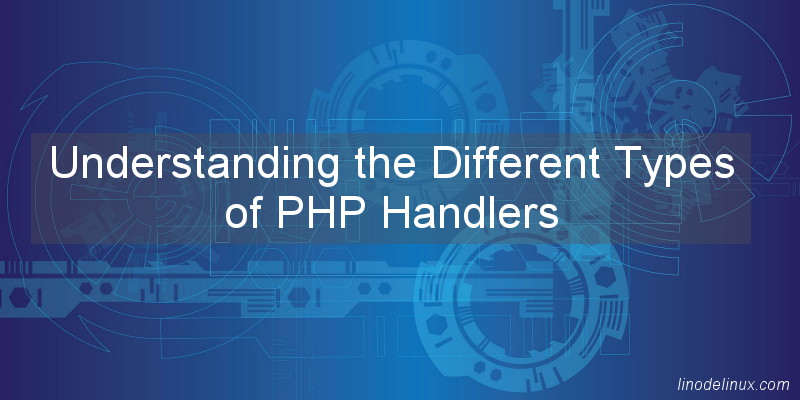PHP is a server-side programming language used to create dynamic websites and web applications. A PHP handler is a program that runs on a web server to process PHP scripts. There are various sorts of PHP handlers available, each with its own set of advantages and disadvantages. The following article will discuss the improve your understanding on the different types of PHP handlers.

Different Types of PHP Handlers
1. mod_php: The most common PHP handler is mod php, which is built into the Apache web server. It is simple to set up and use, but because it runs as a module within the web server process, it may be less efficient than other handlers.
An example of a basic Apache configuration file (usually found at /etc/httpd/conf/httpd.conf) that includes the mod php module and specifies the PHP handler for.php files is as follows:
# Load the PHP module LoadModule php7_module modules/mod_php.so # Add handler for .php files AddHandler application/x-httpd-php .php # Set the PHP handler as the default handler for all files with the .php extension DirectoryIndex index.php # Specify the PHP configuration file location PHPIniDir /etc/php.ini
The LoadModule directive loads the mod php module, and the AddHandler directive sets the PHP handler for any files with the.php extension. The DirectoryIndex directive sets the default PHP handler the default handler for all files ending in.php. The PHPIniDir directive specifies the path to the PHP configuration file, which is usually found at /etc/php.ini.
FastCGI: This PHP handler handles PHP scripts in a separate process, which can increase performance and stability. It also provides better allocation of resource control and may be used with multiple web servers.
PHP-FPM (FastCGI Process Manager): This is a PHP community-developed alternative to FastCGI. It is also a separate process handler, which enhances performance and stability, but it also introduces process management features such as process management, process grouping, and adaptive process spawning.
CGI (Common Gateway Interface): An older PHP handler that is less common today compared to the others. It runs PHP scripts as separate processes, which improves security but lower efficiency.
suPHP: This is a handler that runs PHP scripts with the permissions of the script’s owner, which increases security. However, it can also increase server load and complicate the setup.
Conclusion
Finally, the PHP handler choice will be determined by the web server’s and web application’s specific requirements and resources. The most commonly used and recommended handlers were mod php and PHP-FPM, but other handlers may be more appropriate under certain scenarios.